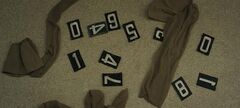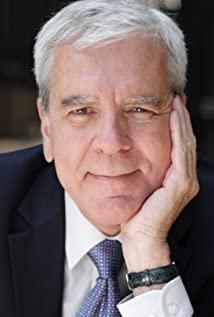Stanford Prison Experiment
*The establishment of authority by analogy - why obedience
The establishment of authority here is undoubtedly terrible. An authority that is only based on its own subjective impression and will not absorb foreign things. Such an authority also has an IQ, which can consolidate its own authority and break down the small groups under the authority, which is even more terrifying.
In this play, how is authority established, first of all to establish the two sides of the conflict, according to Marxist theory, the ruling and the ruled classes?
The ruling class has more abilities, more innate conditions, in the natural case, the result of natural selection, in the experiment, it is artificially given orientation.
The jailer has established a sense of his own authority, but not everyone is happy to be an authority, but the jailer is also a prisoner and obeys the orders of others to "maintain order in the prison", so the cowardly are brave, and the brave are fierce. The purpose of maintaining authority has a compulsive nature, and it has a more oppressive purpose than weight loss and fitness. The establishment of authority is inevitable, and the sense of guilt and fear of unknown consequences is less intense.
Time to start building up authority. Out of dissatisfaction with the provocateur, the fiercer began to vent his emotions. The results are very interesting, and the consequences are not bad. After understanding the gap between the strengths of the two sides, it is even more fearless. In obedience, the authority of the jailer is established. The other jailers seem to be weak in power, whether the follow-up followers are born because of this.
Whether repeated behavior and psychological oppression make the establishment of authority more stable. Why are there still protesters. Because authority cannot establish authority everywhere. Established in a public environment, but in a private environment there are other authorities. The establishment of a small authority is based on a common desire, and a small authority also has an advantage in that the purpose of both parties is the same, and the small authority knows its purpose and the means to achieve it better. Therefore, all-round monitoring in 1984 is justified, preventing the emergence of small authorities and completely ruling.
Why is the authority here so easy to establish? Because of the comprehensive nature of oppression, you can feel oppression even when you stay in the room, and you can also feel oppression when you stay outside the room. The space is squeezed and does not exist.
* Analogy to loss of sanity under authority
Why prisoners comply, there are several ways they can leave, and there are several reasons why they don't.
They can choose to be prison guards at the beginning and leave the prisoner status in a high-end way. They refuse because their starting status is not the authority of the society, but out of confrontation with authority and identification with the status and values of the ruled.
They were unable to withdraw from the experiment, and only a few made a direct choice to withdraw. The one with the strongest temperament quits directly, the second one chooses to fight the jailer, the second one chooses patience, and the second one chooses to cooperate. Not quitting in experiments is for money.
I don’t quit when meeting visitors 1⃣️The outside world can’t understand my suffering 2⃣️Adapted to this environment, the rules seem to become very simple 3⃣️Why the little brother who entered the hole didn’t quit I am still puzzled. Looking at it again, the character of No. 3 is not so determined, with the instigation of the most staunch rebels, he started the revolution, but was defeated and suffered even more shame, he firmly believed that the companion would help him, but the companion eventually If you don't come, your reason will collapse. He didn't leave because he was the first to integrate into this role, and he couldn't leave the experiment in the way of an experimenter, and the way of a prisoner made him unable to leave the experiment, so he collapsed.
The way this experiment can leave is extremely limited. I don’t mind the obedience of individual independence. There is no reason at all. Those who care about individual independence are under too much pressure, and their reason collapses. There is a little brother who seems to be soft and strong, and can integrate into the prisoner status from the beginning, and can write letters to his family as a prisoner, but this seems to be because he has to change his personal identity to adapt to the unstable life, but he still insists on not swearing. , until it threatens the interests of the group. Such a person should still be kind. His chameleon has something to keep at its core. Not saying foul language is just a sign, but it's also a ritual, and it's broken at the end, and then he'll really change color and fully integrate into the role of the prisoner. Fortunately, the experiment stopped.
View more about The Stanford Prison Experiment reviews











